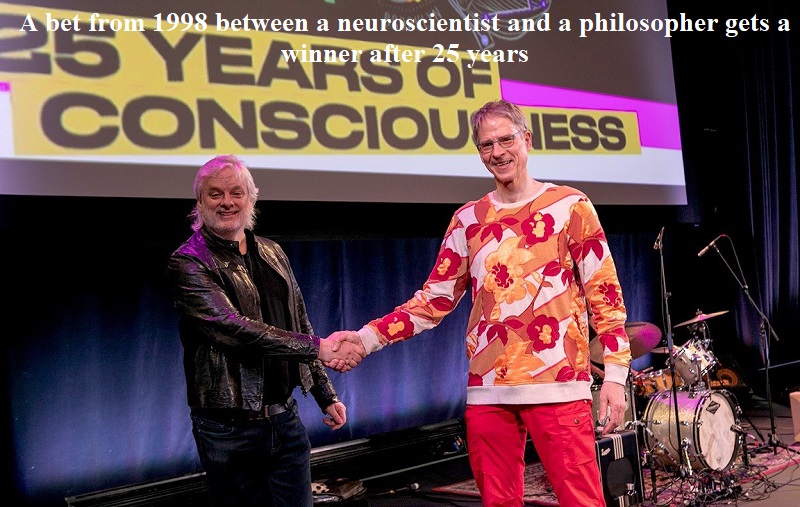
In 1998, two individuals, a neuroscientist named Christof Koch and a philosopher named David Chalmers, made a bet. It took them a quarter-century to determine the winner.
After delivering a lecture on consciousness at a conference, Koch and Chalmers engaged in a passionate discussion. Their conversation escalated into an argument during an evening at a bar in Bremen, Germany, leading them to make a wager.
Koch challenged Chalmers, stating that by 2023, someone would uncover the mechanism by which the brain’s neurons generate consciousness.
The resolution of this bet occurred at the annual meeting of the Association for the Scientific Study of Consciousness in New York City, where Chalmers was declared the victor, as reported by Nature.
The bet, spanning many years, concluded when a study was presented that examined two prominent hypotheses about the neural basis of consciousness.
One hypothesis, called Integrated Information Theory (IIT), proposed that consciousness arises from a specific type of neuronal connectivity forming a “structure” in the brain. This structure remains active during specific experiences and is believed to exist in the posterior cortex, located at the back of the brain.
The second hypothesis, known as the global network workspace theory (GNWT), suggested that consciousness emerges when information is transmitted to different areas of the brain through an interconnected network. According to this theory, transmission occurs at the beginning and end of an experience and involves the prefrontal cortex, situated at the front of the brain.
Both theories were tested by six laboratories, but the results did not align perfectly with either of them.
Chalmers admitted that the bet was relatively favorable for him and a daring one for Koch. He also acknowledged the significant progress made in the field and expressed confidence that scientists would eventually find an answer.
While Koch was reluctant to concede defeat, he honored the wager by presenting Chalmers with a case of fine Portuguese wine the day before the ASSC session. He even proposed doubling down on the bet with another 25-year time frame.
Koch, a German-American neurophysiologist and computational neuroscientist, began his pursuit of the neural underpinnings of consciousness in the 1980s. He has dedicated his efforts to identifying neurons that play a crucial role in generating subjective experiences such as vision, hearing, and desire.

Post Your Comments